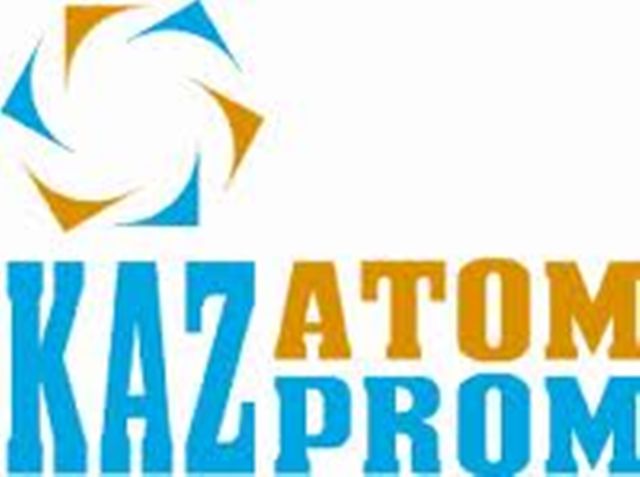
Japanese-Kazakh Nuclear Energy Cooperation: a Partnership for the Future
Publication: Eurasia Daily Monitor Volume: 7 Issue: 148
By:

Japan, the world’s third largest producer of nuclear energy after the US and France, plans to launch a feasibility study this month to explore the possibility of importing uranium from Kazakhstan through Russia’s Far East. Sumimoto Corporation, a Japanese nuclear energy company, claims the move will substantially cut transportation costs as Kazakh uranium currently goes to St. Petersburg and then onto France, the US, and Canada for enrichment before reaching Japan (www.vedomosti.ru, July 22; www.bellona.ru, July 23).
Japan’s trade ministry will finance the six month study that envisions the delivery of Kazakh uranium through the trans-Siberian transportation network to Russia’s Angarsk for enrichment and subsequent transit to Japan via the sea port at Vladivostok (www.rzd-partner.ru, July 23). If realized, the related agreements might also enable Japan to further reduce its dependence on oil from the Middle East and its 50 percent dependence on the uranium imports from Canada and Australia. Kazakhstan will also benefit as it will free up its existing export routes to the West through St. Petersburg, while reducing the transit time for its uranium exports to Asia (www.nti.org, March 13, 2009; www.rzd-partner.ru, July 23).
Russia planned establishing a logistics center in the Far East to meet the rapidly growing needs of the Asian economies, and cooperated with Kazakhstan through transportation-enrichment swap schemes to reduce transit costs, cutting delivery times from 100 to 25 days in some instances. Russia also enjoys 45 percent of the world’s enrichment capacity, while Kazakhstan has huge export potential (www.rzd-partner.ru, July 23; www.energyland.info, July 6). This makes Japan’s feasibility study a relevant undertaking.
The study comes at a time of rising global demand for uranium. There are already 53 nuclear power plants being constructed around the world, with about 500 more planned by 2030 (www.inosmi.ru, February 26). Kazakhstan, therefore, would benefit from the possible transit and enrichment agreements ensuing from the feasibility study. Kazakhstan’s estimated uranium resources, the second largest in the world, constitute 19 percent of global reserves (www.nti.org, March 13, 2009).
In 2009, Kazakhstan became the world’s largest producer of uranium, outperforming Canada and Australia. It has pursued export agreements with Japan, India, China, United States, South Korea, Canada, France, and Russia, seeking to produce as much as 18,000 tons this year alone (www.inform.kz, January 1). “Kazakhstan has been an engine of global uranium production in the last five years,” according to Jim Lennon, an analyst in the Macquarie Group (www.respublika-kz.info, December 18, 2009). However, Mazhit Sharipov, the head of Kazakhstan’s atomic energy agency and industry, treats the country’s successes with caution: “Under intensive extraction we can deplete uranium resources within 70-80 years. Considering that nuclear power is the power industry of the future we should approach this issue very carefully” (www.inform.kz, July 23).
Japan appears well placed to boost Kazakhstan’s export, enrichment and technological capacity, while expanding its status beyond that of a mere supplier of raw materials. “We have uranium, you have high technologies,” Nazarbaev famously stated during his June 2008 visit to Tokyo, where he concluded an agreement to strengthen nuclear energy cooperation (www.articles.gazeta.kz, June 26, 2008). The state-owned Kazatomprom has managed to acquire a 10 percent share of Westinghouse Electric, one of the world’s largest suppliers of nuclear power reactors, from Toshiba (www.inosmi.ru, February 26).
Kazakhstan now plans to obtain a 40 percent share of Japan’s uranium market, for which the proposed feasibility study may conceal lucrative prospects. 2009 estimates suggest that 41 percent of Japan’s electricity production will come from nuclear energy by 2017. Japan currently operates 55 nuclear power reactors and intends to build 11 more in the future (www.kazpravda.kz, June 21, 2008; www.nti.org, March 13, 2009). Consequently, Japan and Kazakhstan have worked to ensure that nuclear energy cooperation continues to produce practical results. Thus, in 2007 Japanese Kansai Electric Power Company, Sumitomo Corporation, Nuclear Fuel Industries Ltd, and Kazatomprom, signed nuclear fuel production agreements, while in 2008 Toshiba agreed to assist Kazakhstan in constructing nuclear power reactors, processing uranium fuel, and building light-water reactors (www.nti.org, March 13, 2009).
Kazatomprom and Marubeni, Tokyo Electric Power, Chubu Electric Power, and Tohoku Electric Power also contracted to develop Kharasan-1 and Kharasan-2 uranium deposits in Kazakhstan, planning to produce 160,000 tons of uranium by 2050. The deal will enable Japan to import 2,000 tons annually and cover 25 percent of its annual fuel needs for nuclear stations (www.ng.ru, December 27, 2007; www.kazpravda.kz, June 21, 2008; www.nti.org, March 13, 2009).
Sumitomo shoji, Kepko, and Kazatomprom, which develop the Zapadny Munkuduk uranium deposit in Kazakhstan, plan to produce 1,000 tons of uranium annually starting this year, enabling Japan to meet 10 percent of its annual uranium needs. Bilateral discussions are currently examining the possible construction of a second nuclear power station in Kazakhstan (www.articles.gazeta.kz, June 26, 2008; www.nti.org, March 13, 2009; www.bvk.kz, May 24). Japan’s cooperation with Kazakhstan has proceeded in the framework of several overarching initiatives towards Central Asia such as “Eurasian Diplomacy,” “Silk Road,” and “Central Asia plus Japan,” which have sought to promote economic development and stability in the region (www.apn.kz, November 20, 2006; www.zakon.kz, June 18, 2008). As this cooperation expands, particularly in the nuclear energy field, Japan and Kazakhstan will find it beneficial to collaborate in preventing nuclear proliferation in Central Asia. Earlier this year, Astana and Tokyo signed a treaty on cooperation in the area of peaceful nuclear energy use, taking an important step in preventing nuclear proliferation (www.vedomosti.ru, July 22; www.kazatomprom.kz, March 3).
Japan’s active involvement in Kazakhstan’s uranium sector provides a platform for the possible transit and enrichment plans involving Russia, Japan and Kazakhstan. With rising global demand for uranium as a key element in nuclear energy production, Tokyo and Astana both stand to gain from their nuclear energy cooperation. Japan is a resource-scarce country with a high-technology capacity, aiming to secure energy markets as the economies of China and India grow rapidly. Kazakhstan, in turn, is a resource-rich country interested in boosting its uranium exports and acquiring technological capabilities that will promote its economic modernization plans and enhance its role in regional and global affairs. Nuclear energy cooperation between Astana and Tokyo appears to be a forward-looking partnership.




